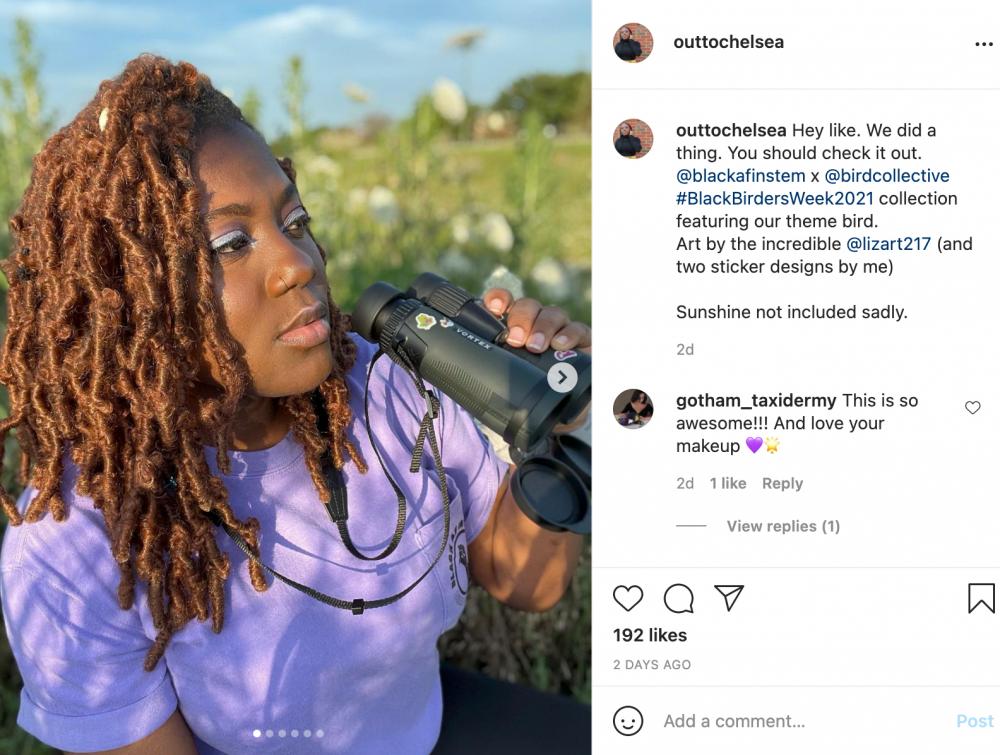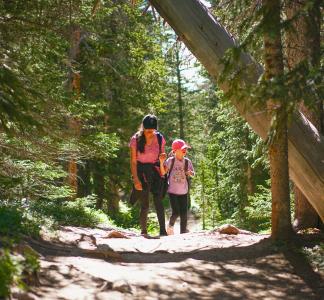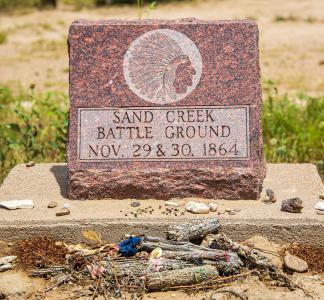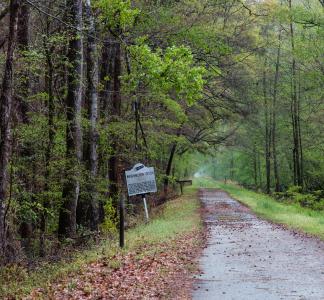It's Black Birders Week. Here are 7 leaders to follow online

Herpetologist and artist Chelsea Connor, a co-founder of Black Birders Week
Chelsea Conner (IG: @outtochelse)
Activists champion inclusion, joy in nature
Not too long after the horrific 2020 shooting death of Ahmaud Arbery began to make headlines, the dangers of being Black outdoors were highlighted again, this time in Manhattan. A birder named Christian Cooper, who is Black, asked a white woman to put her dog on a leash in Central Park and was received with racist hostility, including an implicit threat of violence (the woman said she would tell the police that “an African-American man is threatening my life”; given numerous instances of Black people being hurt or killed in encounters with law enforcement, the danger to Cooper was clear).
The incident spurred activists and social media influencers to launch Black Birders Week, an event that celebrates Black experiences in nature and seeks to change the white-dominated culture surrounding conservation and outdoor spaces.
As the second annual Black Birders Week approaches, we’re taking a look at just a few of the numerous co-organizers and other activists and influencers who have spearheaded the movement to diversify birding, the outdoors and the conservation movement.
Tykee James
Twitter - @Tykee_James
Instagram - @tykeejames
Tykee James, the government affairs coordinator at the National Audubon Society, has said his love of birds was inspired by the belted kingfisher. But it’s racial equity and environmental justice that have become his raison d'être in the conservation movement, including emphasizing that Black experience in the outdoors “goes beyond trauma”--that despite harrowing incidents like the Central Park encounter, it “includes joy, pride, strength, resilience and style.” That’s what led him to help organize Black Birders Week.
“It has been absolutely breathtaking and just so remarkable to see the amount of Black faces, to see the regional diversity of Black joy across the world--not just the country even or the continent or hemisphere, but the world.”
Corina Newsome
Twitter - @hood_naturalist
Instagram - @hood__naturalist
Before Corina Newsome started studying birds as part of her undergraduate degree, she told Science Magazine last year, she thought of them as being uninteresting. Fast-forward to 2021, and it’s safe to say that opinion has changed (the blue jay was her “gateway bird,” and after that first ornithology class, chasing birds swiftly became her “number one pastime”). Now she is the cofounder of Black Birders Week, inspired by the Christian Cooper incident to build solidarity among Black people who explore outdoors. She recently earned her Master of Science degree from Georgia Southern University and joined Georgia Audubon last year as a community engagement manager. Newsome is a reliable online purveyor of both bird drama and urgent posts about environmental justice.
“My hope is that Black people will see people like themselves doing what I am doing and see the beauty and detail of the natural world.”
Joseph Saunders
Twitter - @JDMonroe210
Instagram - @reelsonwheels
Being a macro photographer means producing close-up, details-focused images, usually of very small objects. For Joseph Saunders, that translates into an impressive portfolio of jumping spiders and other (occasionally underappreciated) creatures. But the ‘big picture,’ at least when it comes to racial equity, remains that people of color face significant barriers—both in enjoying the outdoors and working in the conservation movement. As he told an interviewer in 2020, “A lot of people do not feel safe when they go into state or national parks. I’ve talked to many BIPOC [Black, Indigenous and People of Color] people who simply don’t feel safe being out in rural areas. I don’t either, to be frank.” In the conservation realm, he told Smithsonian Magazine last summer, groups all too often emphasize mere “inclusion” of people from marginalized communities, without taking appropriate measures to make them feel safe in the workplace and prevent microaggressions and explicit discrimination.
Though Saunders is a reptile enthusiast first, his involvement in the group BlackAFInSTEM, and in Black Birders Week, has led him to focus on birds a little more. But no matter what he’s currently photographing, he is a must-follow both for gorgeous wildlife shots and commentary on the challenges of navigating the outdoors and outdoor culture with a physical disability.
“After this experience of creating Black Birders Week, I have grown more confident we will show what work is required to create infrastructure for marginalized demographics to show their talents.”
Chelsea Connor
Twitter - @ChelseaHerps
Instagram - @outtochelsea
As a quick perusal of her online presence confirms, herpetologist and artist Chelsea Connor is very into anoles (native lizards of the U.S. that are often kept as pets and known for their colorful dewlaps). But she’s a Black Birders Week co-founder largely because, as she told NPR shortly after the event was first launched, Christian Cooper’s birding experience felt familiar to her; she often felt uncomfortable while out in nature, with white people watching her suspiciously and assuming she didn’t belong (that said, she does enjoy birds; some of her formative birding experiences have involved bananaquits, parrots, yellow warblers and woodpeckers). As an extension of the movement to make nature more accessible and comfortable for Black people, Connor has said she wants to inspire more Black students to study STEM (Science, Technology, Engineering and Math) subjects.
Follow Connor online for, as NPR “Short Wave” host Maddie Sofia put it, “some hot bird content with occasional herpetology touch.”
“We wanted everybody black to be a part of that - to know that they're not alone in enjoying nature; they're not alone in wanting to be outdoors and wanting to have safety there.”
Krystal M. Toney
Twitter - @KrystalMToney
Instagram - @KrystalMToney
A Ph.D. student at the University of North Texas, Krystal M. Toney’s work focuses on disparities in access to nature and conservation education among Black students. Fittingly, she created the site Black in Nature to encourage Black people to experience and embrace nature and the outdoors. On it, she posts about topics including the lack of Black environmentalists’ viewpoints in academic settings and a series of profiles on Black entomologists.
Toney has tweeted that she felt “weird” growing up because she liked looking at insects; big chunks of her social feeds read as a direct rebuke of the social forces that instilled that feeling, and an embrace of the idea that natural spaces are for everyone.
“I just want to teach Black kids how dope nature really is and that they belong in it. That's it, that's all.”
Dr. Kassandra Ford
Twitter - @kassthefish
Instagram - @kassthefish
If you follow Dr. Kassandra Ford online, expect a wide variety of content: posts about everything from banding wood ducks in the wee hours of the morning to the evolution of electric fish skulls, which is the focus of her postdoctoral work. A frequent theme is the need to change the narrative about Black people outdoors. As explained in a blog post co-authored by Dr. Ford, Black Birders Week is meant to increase the visibility of Black people in the outdoors and “showcase the power of representation through the media.” After the inaugural Black Birders Week, Dr. Ford said she felt the event had not only helped inspire the Black community to come together, but spurred white allies to become more active and vocal supporters of their colleagues of color in outdoor and conservation spaces.
"Advice to kind of that up-and-coming generation […] go outside and just start asking questions. You don't have to find out the answers yet. But just starting that process of critical thinking is a really, really important, and I think fun, exercise, and anyone can do it.”
Alex Troutman
Twitter - @n8ture_al
Instagram – @n8ture_al
Dedicated to providing a visible “wildlife role model” for young people of color, Alex Troutman has an online presence that positively bubbles over with a sense of joy and excitement about exploring nature and sharing it with others (not to mention lots of beautiful scenery and animals). A former park ranger and current wildlife biologist, Troutman has noted that one of the factors in the outdoors being considered a “white” space is a simple failure to remember how deeply involved Black people actually were in outdoor culture and conservation history, exemplified by the Buffalo Soldiers, African-American regiments that fought in the Civil War and helped care for national parks in the West.
“You can tell me that something's a cool thing […] But what does that mean if I don't see anybody who looks like me, who says, 'Hey, you can be a scientist like me'[?]”



